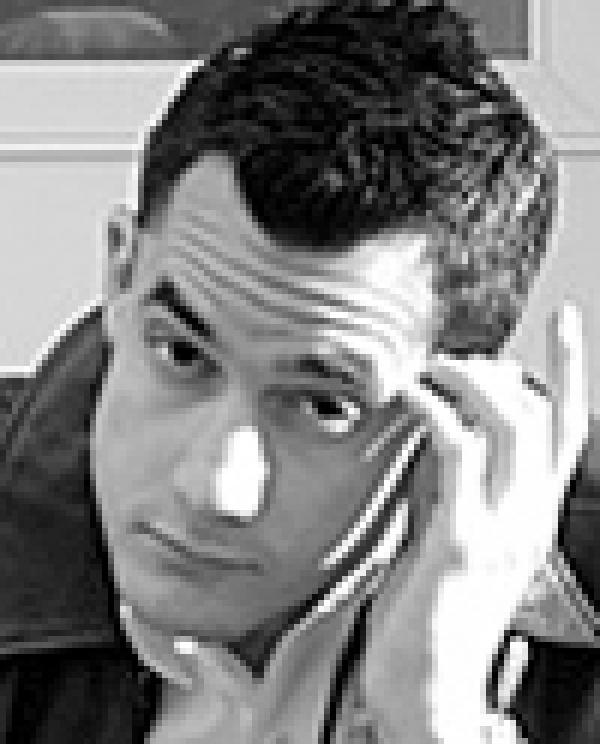Sean Singer

Bio
Sean Singer was born in Guadalajara, Mexico, and currently lives in New York City. His first book Discography won the 2001 Yale Series of Younger Poets Prize, selected by W.S. Merwin, and the Norma Farber First Book Award from the Poetry Society of America. He is the recipient of an artists’ grant from the Massachusetts Cultural Council. He graduated from Indiana University and received his MFA from Washington University in St. Louis. His poems have been published in various journals, including Salmagundi, Tin House, and Pleiades. He has taught students of all ages and has most recently served at Binghamton University and Hunter College.Photo by Ian Catmur
Author's Statement
My process when making poems involves months of listening to music, making lists of words and images, and trying to find imagistic and sonic connections among the things in the content of the poem. After these months of incubation, thinking, planning, mistakes, and visions, I like to write the core of the poem in a single moment. Then, there are more months of line-by-line revision: taking commas out, changing verbs, and so on. The process brings a moment of discovery about language that the product doesn’t, but the energy of the product confirms whether or not the poem was close to the thing in my mind’s eye when I began. Is the poem approaching my goal of making something that seems simultaneously spontaneous and inevitable?
Winning the NEA Fellowship was a real honor, and its support has been critical for me. Much of my first manuscript was written in graduate school, when I had time to devote exclusively to writing. In some ways writing a second manuscript is harder than writing the first, and I wasn’t sure how I’d manage a second while also working full-time. The NEA Fellowship gave me the opportunity to focus exclusively on writing and editing for a semester and a summer; having a block of time free of distractions made it possible for me to finish my second manuscript, Paraffin Fuel. Much of the manuscript is concerned with different kinds of literal and figurative journeys, and the feeling of safety or lack of safety associated with those journeys. The grant enabled me to spend time traveling in Israel, Greece, and Jordan, providing both inspiration and immediacy for the resulting poems. I’m so grateful for the opportunity to finish my manuscript.
The Old Record
rolled out of the hot machine
the Scully Automated Lathe,
covered in oil,
rigged to the metal ends,
dying of spin,
metal on black,
back to back thimble weights, diamond
and rinsed
to a new shine,
lunge and pull into circles,
100 grooves to the centimeter,
calling it vinyl, midnight candle,
drops onto the place
with the push of the nidifugous chirping needle,
a bell crank leadplant,
resting in a red scissor over
the lumps of steel,
then rising
with
throstle
smoke,
jazz dust,
rumbly with the Blues,
the old rumormonger taking us
to the juke,
(the Bambara word that is
wicked
!)
bouncing resin polymer lost to the racy sough
of “Baby she got a phonograph,
and it won’t say a lonesome word
Baby she got a phonograph
and it won’t say a lonesome word
What evil have I done
what evil has the poor girl heard?”
“The Old Record” first appeared in Tin House (Winter 2002, Vol. 3 No. 2).

